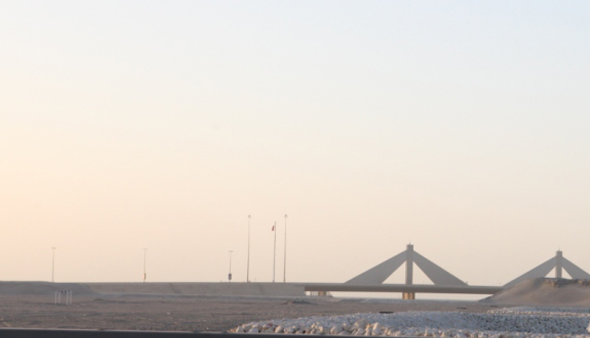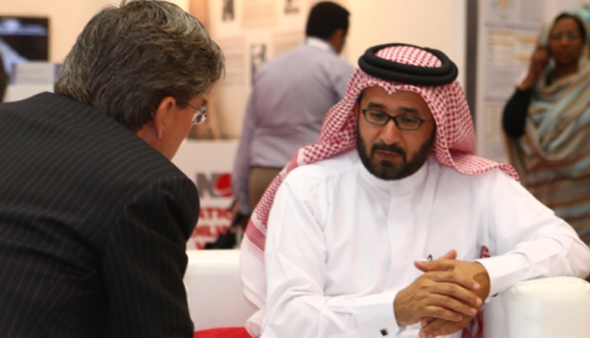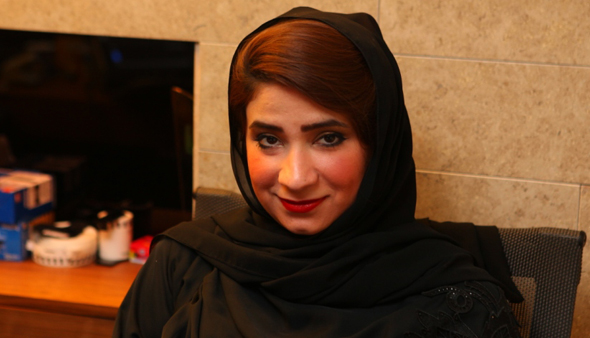Teacher Quality, Vocational Education & Innovation: the Three Pillars of Bahrain’s Education Reform Strategy
Bahrain Sector Analysis
Teacher Quality, Vocational Education & Innovation: the Three Pillars of Bahrain’s Education Reform Strategy
The state of education in the MENA region is a topic of interest to political as well as economical parties, as it is seen as a potential catalyst for social change, better cohesion and most of all a tool to reduce youth unemployment and fasten the development pace in MENA.

Teacher Quality, Vocational Education & Innovation: the Three Pillars of Bahrain’s Education Reform Strategy
Overview: Bahrain and the knowledge-based society
By Houda Al-Cheikh
MANAMA- The state of education in the MENA region is a topic of interest to political as well as economical parties, as it is seen as a potential catalyst for social change, better cohesion, and most of all, a tool to reduce youth unemployment and fasten the development pace in MENA.
Originally sharing some of the educational challenges known to the rest of the region (traditional emphasis on rote learning, lack of pedagogical innovation and lack of resources), the GCC countries are now offering very highly cosmopolitan spaces for learning, as well as working, and are now benefiting from a much higher GDP as well as tremendous economic progress.
Bahrain was the GCC’s pioneer in offering national education to its population and has the highest literacy rate in the region (an impressive 94.6%/CIA World Fact Book).
This has moved Bahrain’s education sector forward by requiring pedagogical advance, while allowing for great investment in educational resources and materials – especially in ICT. Bahrain is putting great emphasis on education and training with the objective to build a knowledge-based society freed from oil revenue dependency.
Bahrain was the GCC’s pioneer in offering national education to its population and has the highest literacy rate in the region (an impressive 94.6%/CIA World Fact Book). In a strategic move, Bahrain has increasingly positioned itself as a new hub for education, investing 10.8% of its overall government expenditure in education in 2006 and hosting the international Education Project in 2010.
What are the objectives and challenges facing Bahrain’s education, and will the current investments change the face of Bahrain’s economy and society as expected?
Investing in high-quality vocational education
Since the 2000s, the education sector in Bahrain has undergone buoyant growth and development. Twelve new universities opened their doors in one decade when only three existed previously. (Most universities focus on subjects that are either technical, or related to finance, law, economics and commerce, with less attention given to the humanities.)
This bout of growth was topped in 2008 by the publication of the long-term strategic framework for economic development Bahrain Vision 2030, a milestone in the country’s development path which pledged to reform national education through three main objectives:
-to strengthen the teaching profession through improved recruitment, training and employment conditions;
-to improve vocational education by introducing effective linkages between learning environments and the needs of the private sector, thus ensuring the successful transition of students from education to workplace;
-to guarantee high standards through the creation of the Quality Assurance Authority for Education and Training, an independent body responsible for conducting inspections in schools, vocational institutions and universities, as well as running examinations.
In order to achieve high quality standards in the teaching profession, the Bahrain Teachers College opened its doors four years ago and has delivered over 350,000 hours of professional development, graduated over 250 new school leaders at the postgraduate level, and last year graduated its first batch of 69 primary school teachers.
Professor Ian Haslam, Dean of the BTC, tells us that the College is “focused on improving the quality of new teacher recruits through experiential learning, reflective practice, strong partnerships with schools, benchmarked curricula, school leadership development and teachers career-long postgraduate professional development.” 
He adds that “The challenge of reform in a developing system like Bahrain is to ‘cultivate the soil before/whilst the seed is planted’ meaning you have to develop the teachers and school leaders in the system to be able to support modern approaches to pedagogy before you send the new recruits to schools to teach.”
The BTC is based on the Singaporean model and works in close partnership with the Ministry of Education, the National Institute of Education and the Nanyang Technological University, as well as working closely with Bahraini schools (1200 visits planned for 2013).
The vocationalisation of education is one of the Ministry of Education’s priorities. Tamkeen, an independent authority which formulates strategic plans to enhance the local population’s employability, has made a $100 million investment to provide more than 18,000 Bahraini nationals with sector-specific skills training via a four year plan.
The goal is to work closely with the private sector to ensure that the Bahraini population has the right set of skills to respond to employers’ needs, in order to counter the trend of private companies hiring expatriate workforce. It is also a move to increase female employment amongst Bahrainis.
In 2013, the first generation of the state-of-the-art Bahrain Polytechnic, a dynamic and innovative institution which puts the emphasis on problem-solving, teamwork and initiative skills rather than pure knowledge, will be graduating. Bahrain Polytechnic is at the heart of Bahrain’s long-term objective: to employ a high-quality education and provide a high-value-added production route for development, thus slowly shifting away from oil revenue dependency.
At the secondary level, a tracking system has been implemented in order for students to focus on a subject area of their choice, so as to be better prepared for further education. However, concerns about the lack of involvement on the part of the private sector are raised.
Indeed, it is known by educationalists that the quality of vocational training depends on the correct balance between classroom learning and workplace training. Hence, the industry is incentivized through various initiatives to arrange workplace placement for students, available through the Ministries of Labour and Education, Tamkeen, and other government stakeholders.
Technology, Innovation in Education, and Education for Innovation 
Bahrain moved five ranks up in the Global Innovation Index in from 2011 to 2012, a report that ranks 141 countries on the basis of their innovation capabilities and results, thus becoming 3rd regionally and 41st in the world, and proving its commitment to innovation.
A large number of projects has earned Bahrain its ranking: the project @bahrain announced in 2009 will consist of a technology research institute, a technology park, and more than one million square metres of business, entertainment and education facilities.
Bahrain also announced its plans to establish a US$1 billion ‘Higher Education City’ in co-operation with the Kuwaiti Financial Investment Corporation (KFIC), featuring a consortium of foreign universities. A regional ICT hub is to be set up in cooperation with UNESCO; Bahrain is also part of the e-University project, an e-learning initiative to improve information access in the 31 member states of the Asia Cooperation Dialogue.
Heavy investment in ICT provision for schools was accompanied by the King Hamad’s School of the Future initiative, designed to create real e-learning spaces where technology is placed at the service of pedagogy in a productive manner, rather than simply adding computers to classrooms.
In the context of diminishing oil reserves, investing in innovation, creative thinking and entrepreneurial skills is absolutely crucial as the government of Bahrain is working to develop a competitive micro-, small- and medium-size enterprises (MSMEs) sector in which the local population is active.
The Arab Regional Centre for Entrepreneurship and Investment Training (ARCEIT) was established in Bahrain and works closely with the United Nation Industrial Development Organization (UNIDO).
In addition to investing heavily in technology innovation, state-of-the-art facilities and high-quality training, Bahrain is also jumping on the ‘need for innovation in education’ bandwagon along with all industrialised nations who realise how great a challenge education is facing today, as it has the responsibility to prepare young people for changes that can barely be envisaged.
These first steps constitute a turning point for Bahrain’s education. Everywhere in the world, educationalists are researching ways of revolutionising education so that it may respond to the needs of the 21st century, where the world is changing faster than ever, while mainstream formats and paradigms in education have changed little since the 1960s.
In addition to investing heavily in technology innovation, state-of-the-art facilities and high-quality training, Bahrain is also jumping on the ‘need for innovation in education’ bandwagon along with all industrialised nations who realise how great a challenge education is facing today, as it has the responsibility to prepare young people for changes that can barely be envisaged. As educationalists world-wide struggle with uncertainty, the most important thing in a country’s education is to instill a highly dynamic capacity for innovation and adaptation – precisely what Bahrain is aiming for.
There is a lot left to do in Bahrain: results are just starting to be visible, the teaching profession reform process, and the overall process of shifting towards an innovative, knowledge-based society are still at embryonic stages. But this is recognised by the government of Bahrain and there is a good understanding of what must be done and a strong commitment to achieve it; as well as the necessary financial investment to get there.